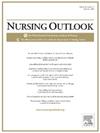非殖民化护理教育:通过全球和交叉镜头超越土著观点
IF 3.7
2区 医学
Q1 NURSING
引用次数: 0
摘要
护理教育历来植根于以欧洲为中心的范式,将土著、种族化和全球南方的知识体系边缘化。要求非殖民化的呼声正在扩大到定居者-殖民地范围之外。本文旨在通过提出一个全球性的、交叉的、以正义为导向的框架来推进非殖民化护理教育的论述,该框架超越了土著包容,批判性地审视了跨地域、知识系统和制度结构的殖民遗产。中心信息是,非殖民化必须是结构性的,而不是象征性的,通过以全球南方、种族化社区和流散知识体系的认识论为中心,改变护理课程、教学法和制度实践。本文解决了护理教育文献中的一个关键差距,提出了一个理论框架,询问殖民遗产超越定居者-殖民背景。它将非殖民化定位为一种跨国的、交叉的和结构性的必要性,以全球南方、散居社区和种族化人口的认识论为基础。通过概念和理论分析,本文综合了批判种族理论、交叉性、土著学术和全球南方视角的文献。案例和表格说明了实践。非殖民化必须解决结构性种族主义、白人制度规范、隐藏课程和象征性包容问题。变革战略包括关键的健康素养、教师发展、社区伙伴关系和跨国合作。非殖民化护理需要转移知识生产的权力,将正义纳入课程和政策,并促进关系问责制。护理必须被重新想象为一个政治和伦理的治愈和解放的空间。本文章由计算机程序翻译,如有差异,请以英文原文为准。
Decolonizing nursing education: Beyond Indigenous perspectives through a global and intersectional lens
Nursing education is historically rooted in Eurocentric paradigms that marginalize Indigenous, racialized, and Global South knowledge systems. Calls for decolonization are expanding beyond settler-colonial contexts. This paper aims to advance the discourse on decolonizing nursing education by proposing a global, intersectional, and justice-oriented framework that moves beyond Indigenous inclusion to critically examine colonial legacies across geographies, knowledge systems, and institutional structures. The central message is that decolonization must be structural, not symbolic, transforming nursing curricula, pedagogy, and institutional practices by centering epistemologies from the Global South, racialized communities, and diasporic knowledge systems. This paper addresses a critical gap in nursing education literature by proposing a theoretical framework that interrogates colonial legacies beyond settler-colonial contexts. It positions decolonization as a transnational, intersectional, and structural imperative, grounded in epistemologies from the Global South, diasporic communities, and racialized populations. Using a conceptual and theoretical analysis, the paper synthesizes literature from critical race theory, intersectionality, Indigenous scholarship, and Global South perspectives. Case examples and tables illustrate praxis. Decolonization must address structural racism, White institutional norms, hidden curricula, and symbolic inclusion. Transformative strategies include critical health literacy, faculty development, community partnerships, and transnational collaboration. Decolonizing nursing requires shifting power in knowledge production, embedding justice in curricula and policy, and fostering relational accountability. Nursing must be reimagined as a political and ethical space of healing and liberation.
求助全文
通过发布文献求助,成功后即可免费获取论文全文。
去求助
来源期刊

Nursing Outlook
医学-护理
CiteScore
6.20
自引率
7.00%
发文量
109
审稿时长
25 days
期刊介绍:
Nursing Outlook, a bimonthly journal, provides innovative ideas for nursing leaders through peer-reviewed articles and timely reports. Each issue examines current issues and trends in nursing practice, education, and research, offering progressive solutions to the challenges facing the profession. Nursing Outlook is the official journal of the American Academy of Nursing and the Council for the Advancement of Nursing Science and supports their mission to serve the public and the nursing profession by advancing health policy and practice through the generation, synthesis, and dissemination of nursing knowledge. The journal is included in MEDLINE, CINAHL and the Journal Citation Reports published by Clarivate Analytics.
 求助内容:
求助内容: 应助结果提醒方式:
应助结果提醒方式:


